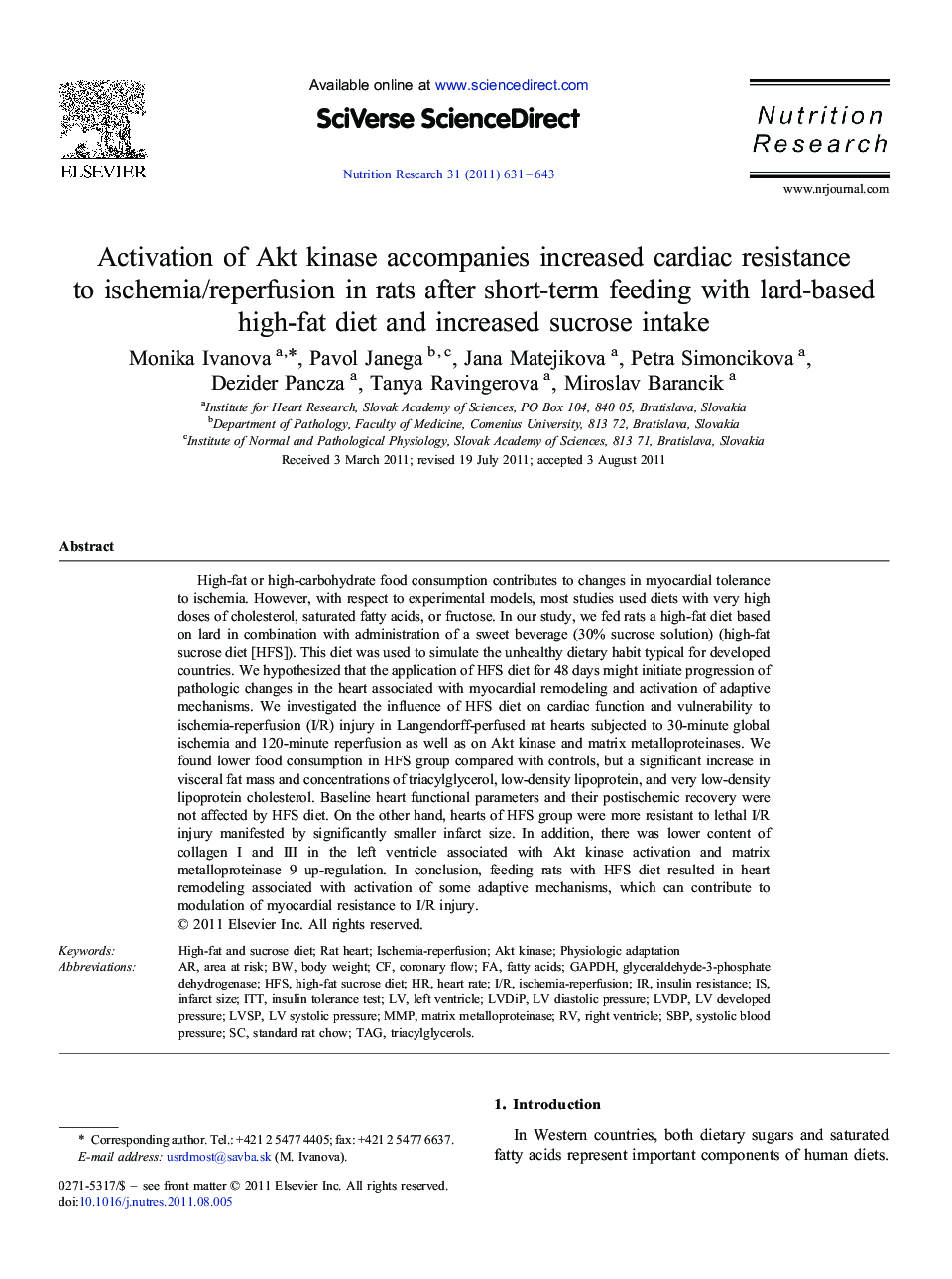| Article ID | Journal | Published Year | Pages | File Type |
|---|---|---|---|---|
| 5904659 | Nutrition Research | 2011 | 13 Pages |
Abstract
High-fat or high-carbohydrate food consumption contributes to changes in myocardial tolerance to ischemia. However, with respect to experimental models, most studies used diets with very high doses of cholesterol, saturated fatty acids, or fructose. In our study, we fed rats a high-fat diet based on lard in combination with administration of a sweet beverage (30% sucrose solution) (high-fat sucrose diet [HFS]). This diet was used to simulate the unhealthy dietary habit typical for developed countries. We hypothesized that the application of HFS diet for 48 days might initiate progression of pathologic changes in the heart associated with myocardial remodeling and activation of adaptive mechanisms. We investigated the influence of HFS diet on cardiac function and vulnerability to ischemia-reperfusion (I/R) injury in Langendorff-perfused rat hearts subjected to 30-minute global ischemia and 120-minute reperfusion as well as on Akt kinase and matrix metalloproteinases. We found lower food consumption in HFS group compared with controls, but a significant increase in visceral fat mass and concentrations of triacylglycerol, low-density lipoprotein, and very low-density lipoprotein cholesterol. Baseline heart functional parameters and their postischemic recovery were not affected by HFS diet. On the other hand, hearts of HFS group were more resistant to lethal I/R injury manifested by significantly smaller infarct size. In addition, there was lower content of collagen I and III in the left ventricle associated with Akt kinase activation and matrix metalloproteinase 9 up-regulation. In conclusion, feeding rats with HFS diet resulted in heart remodeling associated with activation of some adaptive mechanisms, which can contribute to modulation of myocardial resistance to I/R injury.
Keywords
LVDPMMPLVSPHFSSBPLV developed pressureGAPDHI/Rinsulin tolerance testAkt kinaseFatty acidsInfarct sizeischemia-reperfusionITTright ventricleleft ventricleTriacylglycerolsTAG یا triacylglycerols coronary flowHeart ratesystolic blood pressureRat heartmatrix metalloproteinaseInsulin resistancearea at riskbody weightglyceraldehyde-3-phosphate dehydrogenase
Related Topics
Life Sciences
Biochemistry, Genetics and Molecular Biology
Endocrinology
Authors
Monika Ivanova, Pavol Janega, Jana Matejikova, Petra Simoncikova, Dezider Pancza, Tanya Ravingerova, Miroslav Barancik,
